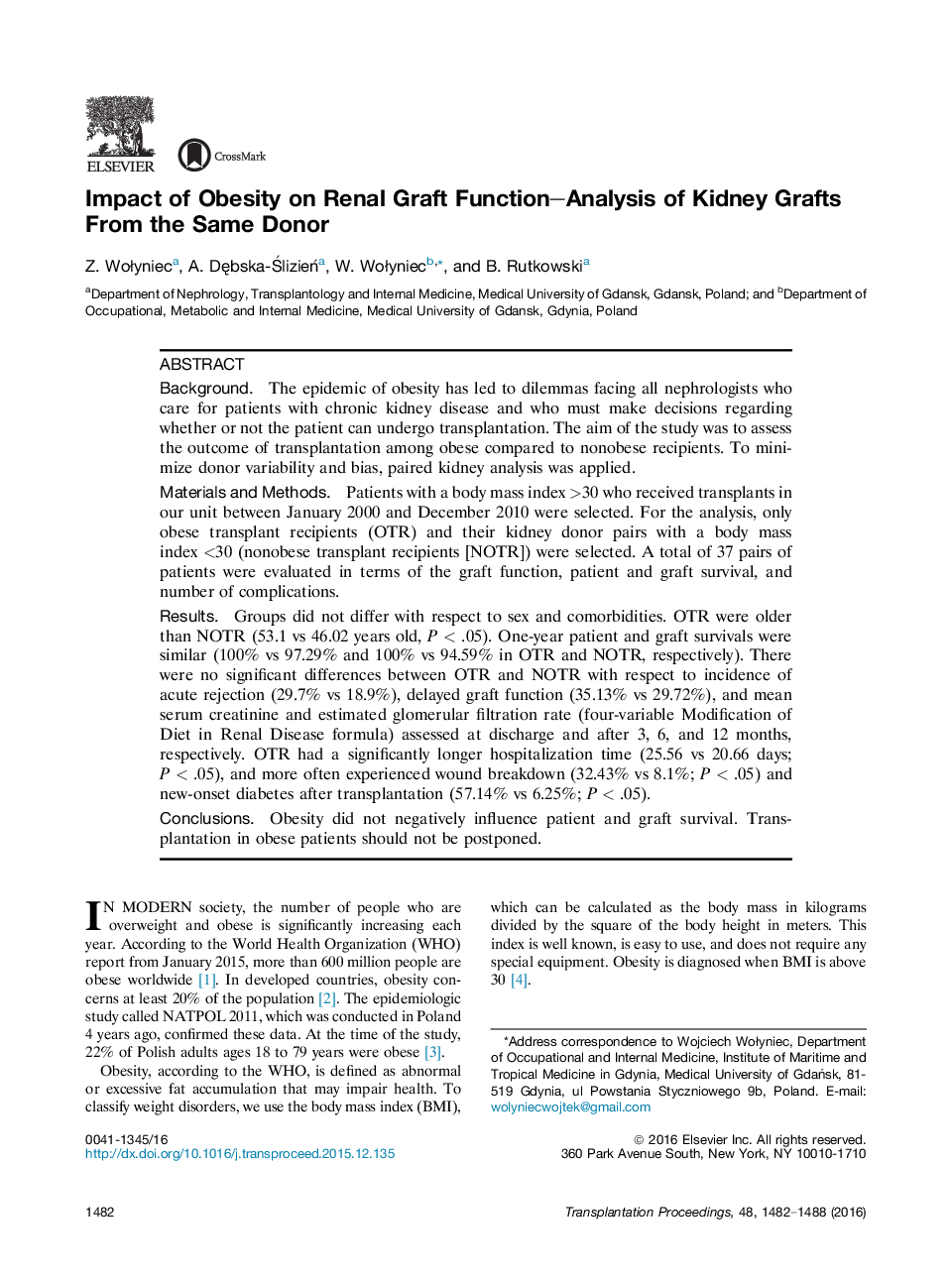| کد مقاله | کد نشریه | سال انتشار | مقاله انگلیسی | نسخه تمام متن |
|---|---|---|---|---|
| 4256058 | 1284510 | 2016 | 7 صفحه PDF | دانلود رایگان |
• Obesity did not negatively influence patient and graft survival.
• Transplantation in obese patients should not be postponed.
• In developed countries, obesity concerns at least 20% of the population.
• Data concerning the influence of obesity on renal transplant outcomes are still conflicting.
• There is a much higher risk of new-onset diabetes after transplantation in obese recipients.
BackgroundThe epidemic of obesity has led to dilemmas facing all nephrologists who care for patients with chronic kidney disease and who must make decisions regarding whether or not the patient can undergo transplantation. The aim of the study was to assess the outcome of transplantation among obese compared to nonobese recipients. To minimize donor variability and bias, paired kidney analysis was applied.Materials and MethodsPatients with a body mass index >30 who received transplants in our unit between January 2000 and December 2010 were selected. For the analysis, only obese transplant recipients (OTR) and their kidney donor pairs with a body mass index <30 (nonobese transplant recipients [NOTR]) were selected. A total of 37 pairs of patients were evaluated in terms of the graft function, patient and graft survival, and number of complications.ResultsGroups did not differ with respect to sex and comorbidities. OTR were older than NOTR (53.1 vs 46.02 years old, P < .05). One-year patient and graft survivals were similar (100% vs 97.29% and 100% vs 94.59% in OTR and NOTR, respectively). There were no significant differences between OTR and NOTR with respect to incidence of acute rejection (29.7% vs 18.9%), delayed graft function (35.13% vs 29.72%), and mean serum creatinine and estimated glomerular filtration rate (four-variable Modification of Diet in Renal Disease formula) assessed at discharge and after 3, 6, and 12 months, respectively. OTR had a significantly longer hospitalization time (25.56 vs 20.66 days; P < .05), and more often experienced wound breakdown (32.43% vs 8.1%; P < .05) and new-onset diabetes after transplantation (57.14% vs 6.25%; P < .05).ConclusionsObesity did not negatively influence patient and graft survival. Transplantation in obese patients should not be postponed.
Journal: Transplantation Proceedings - Volume 48, Issue 5, June 2016, Pages 1482–1488
